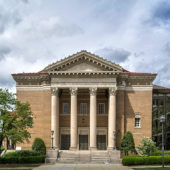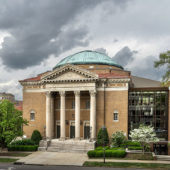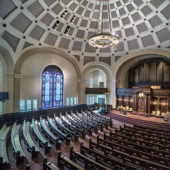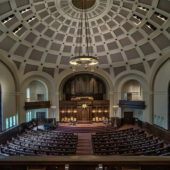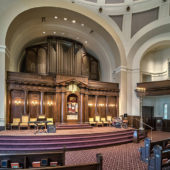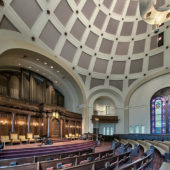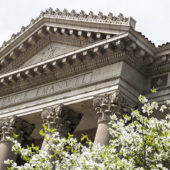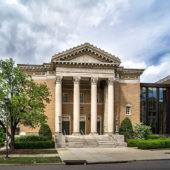Birmingham’s first Jewish congregation and only Reform congregation.
Temple Emanu–El was the first Jewish congregation established in the city of Birmingham and remains the only one. The community that eventually became Temple Emanu–El first held Rosh Hashana and Yom Kippur celebrations in 1881. Before the synagogue was built, the community met at the Cumberland Presbyterian Church for the public worship services. Land at 5th Avenue North and 17th Street for the synagogue was purchased in 1884, and construction began in 1886. That building, the congregation’s first permanent home, was inaugurated on January 24, 1889.
In 1910, due to growth and population shift in Birmingham, the congregation planned for a move to a larger synagogue and chose a site on Highland Avenue, convenient to the city’s newer residential development. The grand structure with a domed sanctuary was designed by architect William Weston for the site at the corner of 21st Street South and Highland Avenue. Construction was completed in 1914 and the building along with additions and renovations remains in use.
William C. Weston (born 1866 in New Zealand – died 1932 in Detroit, Michigan) was a prominent Birmingham architect. He emigrated to the United States with his immediate family in 1885. He practiced architecture with famous Daniel Burnham’s firm in Chicago, Illinois before moving to Birmingham in 1901, where he immediately submitted the winning design in response to an invited competition for the Woodward Building, which became the first steel– framed building in the city.

